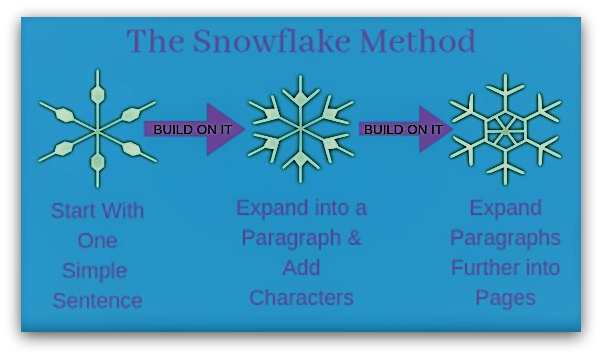
Have you read hundreds of novels in your life, taken multiple writing classes, asked friends and family for advice, and still confused about how to begin writing a novel? Do not worry; you are not alone.
Stop overthinking how to become an author. Put your fingers to work on the keyboard and start writing. Just remember to keep a few things in mind while you are at it.
If others can, you can
“A professional writer is an amateur who didn’t quit.”
It can be intimidating to read other authors and think you will never be able to write like them. It is perfectly normal to feel that, and a lot of amateur writers struggle through this. However, keep faith in yourself and your skills.
Novel writing is a long, laborious, and exhausting process. But with diligence, discipline, and enthusiasm, you will be able to see the fruits of your hard work.
Write your first novel in the genre you like reading.
“Research is formalized curiosity. It is poking and prying with a purpose.”
– Zora Neale Hurston
You may have dreamt of writing a novel that is one of its kind and will invent a new genre altogether. But before you set on inventing new genres, it is recommended to write some practice novels. Plan your first novel in a genre you are familiar with to give yourself time to learn other novel-writing technicalities.
A genre you are familiar with will also require extensive research to fills gaps in your knowledge. The advice is not to experiment with new writing styles, techniques, and genres but to master the art of writing first.
Build a story in your mind
“If you start with a bang, you won’t end with a whimper.”
– T.S. Eliot
Before you begin the writing process, imagine everything in your mind like setting, themes, characters, major conflicts, symbols, etc. Think of how you will start the novel and then each chapter. Work out these different parts, create an outline, and put it in a map or table form.
If you start the process in an organized way, the probability of you finding loopholes later in the novel-writing journey will decrease. There are various outlining methods that people use. For instance, you can create stick notes of important events in your plot, put them in chronological order, and paste them on the wall above your desk.
It might time for you to find an approach that works the best for you. Once you find it, start using it and grow it further according to your convenience.
The Snowflake Method
You can also use the snowflake method of writing, a technique in which you start crafting your novel from scratch and keep adding elements to it step by step. Some basic steps of the snowflake method are:
- Write the plot of your entire novel in a sentence or two
- Expand this sentence further into a paragraph
- Include characters in this paragraph
- Build a background story of the characters
- Write new paragraphs
- Expand these paragraphs to full pages
- Include other elements in pages like dialogues, conflicts, etc.

Do not have a lot of characters.
You might be tempted to include a lot of characters and elements in your first novel. But more the characters, the difficult it will be to handle them and keep your readers interested in them. Start with a few and give them interesting background stories.
Write everyday
“If my doctor told me I had only six minutes to live, I wouldn’t brood. I’d type a little faster.”
– Isaac Asimov
You schedule a lot of things in your life like going to the gym, attending work meetings, visiting your friends, taking your dog for a walk, then why not writing? Schedule a time every day when you will do nothing else and just write. Just liking exercising regularly builds your stamina; writing every day can strengthen your writing capabilities.

Do not continue writing for long hours to avoid exhaustion, both physical and mental. Instead, follow timed sessions, with ten minutes break in between to relax your mind and body. Do not keep sitting at your desk during the break; take a walk to ease your muscles.
Do not edit while you write.
“Get it down. Take chances. It may be bad, but it’s the only way you can do anything really good.”
– William Faulkner
A lot of beginners make the mistake of editing while they write. Editing while writing breaks the creative flow, which can then affect the quality of your work. Do not worry about writing a perfect first draft; just continue writing, and you can always back to edit your chapters at the end.
Do not be afraid to delete
“It is perfectly okay to write garbage – as long as you edit brilliantly.”
– C.J. Cherry
The ultimate trick to birth a coherent and clear novel is editing. Do not be afraid to delete unwanted words, sentences, paragraphs, and even chapters if need be. It can be difficult to simply discard your hard work, but it is important to polish your work and communicate your thoughts.
However, editing skills are not something you will build at a day’s notice. With time as you grow personally as a writer, you will also master the art of editing.
Keep your tools ready.
There are a lot of tools and software you can use to facilitate your writing process. The use of digital softwares will not help you get organized by storing all your documents in one place but will also edit your writing.
Apart from the digital tools, some physical tools you should consider keeping in handy are notepads, highlighters, bulletin boards, whiteboard, markers, stick notes, pushpins, pens, etc.
Bottom Line
Writing a new novel can be a daunting and exhausting process but do not give up. Keep faith in yourself and your writing skills. It might take time for you to see your dream come true but remember you can do it.


